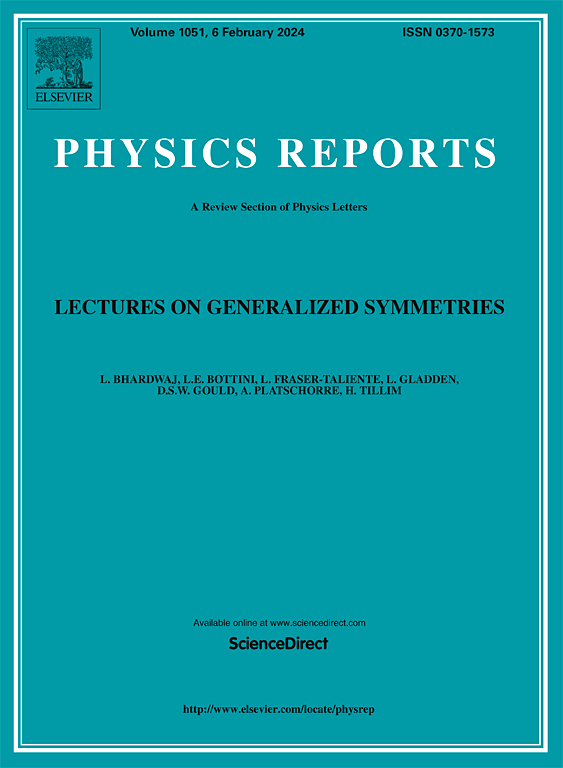Information theory for complex systems scientists: What, why, and how
IF 29.5
1区 物理与天体物理
Q1 PHYSICS, MULTIDISCIPLINARY
引用次数: 0
Abstract
In the 21st century, many of the crucial scientific and technical issues facing humanity can be understood as problems associated with understanding, modeling, and ultimately controlling complex systems: systems comprised of a large number of non-trivially interacting components whose collective behavior can be difficult to predict. Information theory, a branch of mathematics historically associated with questions about encoding and decoding messages, has emerged as something of a lingua franca for those studying complex systems, far exceeding its original narrow domain of communication systems engineering. In the context of complexity science, information theory provides a set of tools which allow researchers to describe a variety of dependencies, including interactions between the component parts of a system, interactions between a system and its environment, and the mereological interaction between the parts and the “whole”.
In this review aims to provide an accessible introduction to the core of modern information theory, aimed specifically at aspiring (and established) complex systems scientists. This includes standard measures, such as Shannon entropy, relative entropy, and mutual information, before building to more advanced topics, including: information dynamics, measures of statistical complexity, information decomposition, and effective network inference. In addition to detailing the formal definitions, we also make an effort to discuss how information theory can be interpreted and to develop the intuitions behind abstract concepts like “entropy”. The goal is to enable interested readers to understand what information is, and how it is used to better further their own research and education.
复杂系统科学家的信息理论:什么,为什么,如何
在21世纪,人类面临的许多关键科学和技术问题可以被理解为与理解、建模和最终控制复杂系统相关的问题:由大量非琐碎的相互作用组件组成的系统,其集体行为可能难以预测。信息论是数学的一个分支,历史上一直与信息的编码和解码问题有关,它已经成为研究复杂系统的人的通用语言,远远超出了它最初狭窄的通信系统工程领域。在复杂性科学的背景下,信息论提供了一套工具,使研究人员能够描述各种依赖关系,包括系统组成部分之间的相互作用,系统与其环境之间的相互作用,以及部分与“整体”之间的流变相互作用。在这篇综述的目的是提供一个可访问的介绍现代信息理论的核心,特别是针对有抱负的(和建立)复杂系统的科学家。这包括标准度量,如香农熵、相对熵和互信息,然后再构建更高级的主题,包括:信息动态、统计复杂性度量、信息分解和有效网络推理。除了详细说明形式定义之外,我们还努力讨论如何解释信息理论,并在“熵”等抽象概念背后发展直觉。目的是使感兴趣的读者了解什么是信息,以及如何利用信息更好地促进自己的研究和教育。
本文章由计算机程序翻译,如有差异,请以英文原文为准。
求助全文
约1分钟内获得全文
求助全文
来源期刊

Physics Reports
物理-物理:综合
CiteScore
56.10
自引率
0.70%
发文量
102
审稿时长
9.1 weeks
期刊介绍:
Physics Reports keeps the active physicist up-to-date on developments in a wide range of topics by publishing timely reviews which are more extensive than just literature surveys but normally less than a full monograph. Each report deals with one specific subject and is generally published in a separate volume. These reviews are specialist in nature but contain enough introductory material to make the main points intelligible to a non-specialist. The reader will not only be able to distinguish important developments and trends in physics but will also find a sufficient number of references to the original literature.
 求助内容:
求助内容: 应助结果提醒方式:
应助结果提醒方式:


